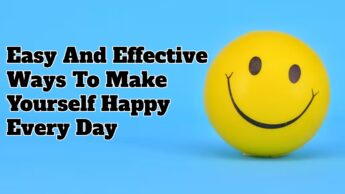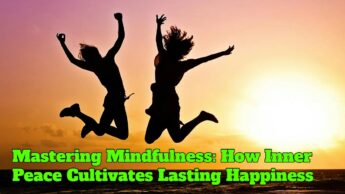These exercises are not a substitute for therapy, medication, or other professional interventions for those with clinical anxiety, depression, or other mental health disorders. Nonetheless, some studies indicate that they might be useful in addition to such services.
Improve your social interactions
Many studies have indicated that the strongest factor influencing happiness is social interaction. According to a study, the most important thing that keeps people happy throughout their lives is having close ties with their spouses, families, friends, and neighbors. Strong relationships lead to greater happiness and better physical and mental health than weaker partnerships do. (Researchers are still examining the link between relationships and physical health; there is evidence to suggest that healthy relationships are associated with decreased levels of stress hormones and chronic inflammation.) The study found that relationships of high quality, rather than a large number, are stronger indicators of a long and happy life than socioeconomic class, IQ, or heredity.
Engage in some activities
Discover ways to show kindness throughout the day, no matter how tiny. These gestures can be as easy as complimenting someone’s clothes at the grocery store, giving your spouse coffee before work, or starting a friendly Zoom conversation with a coworker you don’t often interact with.
Develop compassion for yourself.
Studies claim that people have made self-criticism a cultural value and that they frequently punish themselves for failures and setbacks. But, severe self-criticism prevents you from reaching your objectives.
Instead of wallowing in the past or worrying about the future, be in the present. Recognize that everyone experiences setbacks since they are a normal part of being human. Develop a kind, encouraging inner voice as opposed to a critical, antagonistic one.
More Sleep Will Reduce Your Sensitivity to Negative Feelings
We are aware that sleep improves our ability to focus and be more productive as well as helping our bodies recuperate from the day. It turns out that happiness also depends on sleep.





